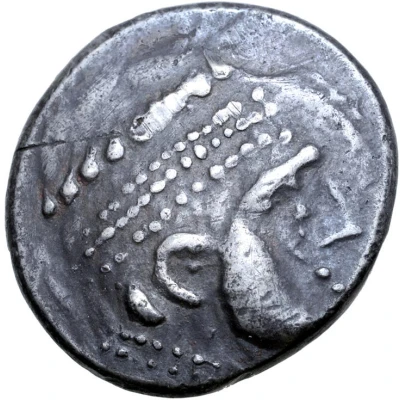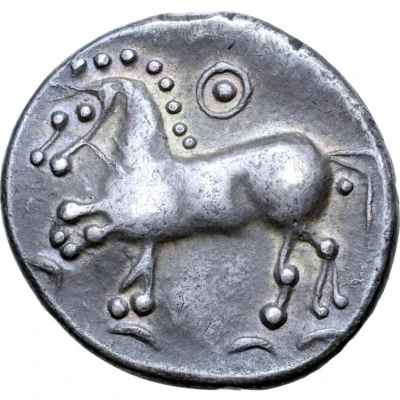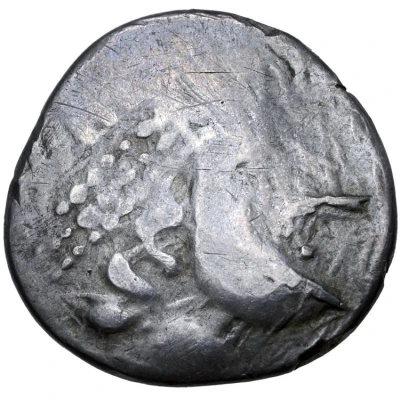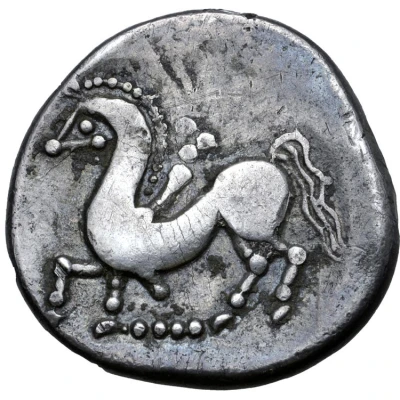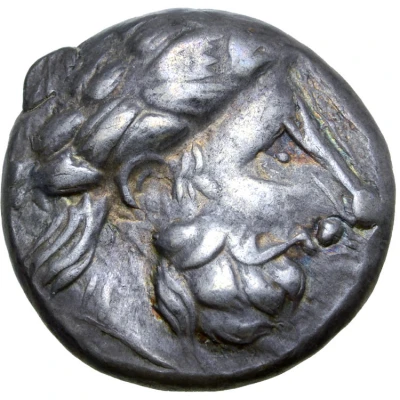
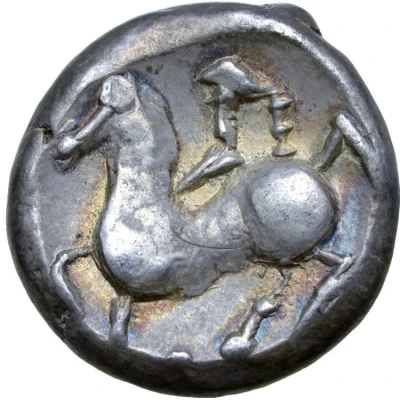

© Roma Numismatics Limited
Tetradrachm Pticie Type 300 BC - 101 BC
| Silver | 14.07 g | 23 mm |
| Issuer | Uncertain Central European Celts (Uncertain Central and Eastern European Celts) |
|---|---|
| Type | Standard circulation coin |
| Years | 300 BC - 101 BC |
| Value | Tetradrachm (4) |
| Currency | Drachm |
| Composition | Silver |
| Weight | 14.07 g |
| Diameter | 23 mm |
| Shape | Round (irregular) |
| Technique | Hammered |
| Orientation | Variable alignment ↺ |
| Demonetized | Yes |
| Updated | 2024-10-09 |
| Numista | N#194638 |
|---|---|
| Rarity index | 100% |
Reverse
Stylised rider on horseback to left.
Comment
Examples of this type:• Example #1 (14.07g, 23mm, 12h, Good Very Fine) - in main image:
◦ Ex-Hermann Lanz Collection; published in Michaela Kostial - "Kelten im Osten. Gold und Silber der Kelten in Mittel und Osteuropa, Sammlung Lanz", München, 1997, #763;
◦ Exhibited by the Staatlichen Münzsammlung München at the 1997 International Numismatic Congress in Berlin; at the Berliner Bank also in 1997; also exhibited at the Luitpoldblock Palmengarten, Munich in 2003 (exhibition #135[reverse]);
◦ Auctioned by Roma Numismatics Ltd, Auction XVII, 28 March 2019, Lot 203. Sold for 2,600 GBP.
◦ Auctioned by Numismatik Lanz München, Auction 34, 25 November 1985, lot 22.
Interesting fact
One interesting fact about this coin is that it features a unique blend of Celtic and Greek influences in its design. The obverse (front) side of the coin depicts a stylized horse, which was a common motif in Celtic art, while the reverse (back) side features the image of a seated figure, reminiscent of Greek coins from the same period. This fusion of artistic styles reflects the cultural exchange and blending that occurred between the Celts and Greeks during this time period.
